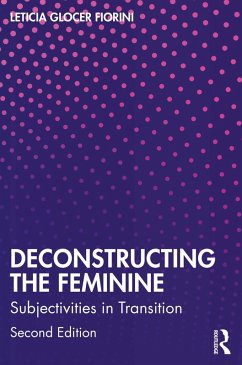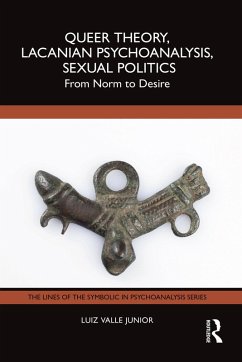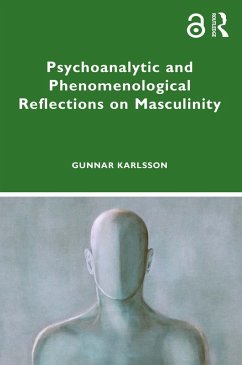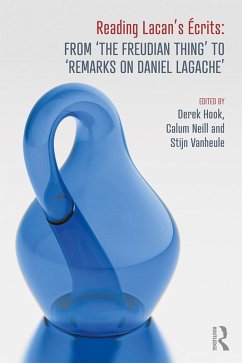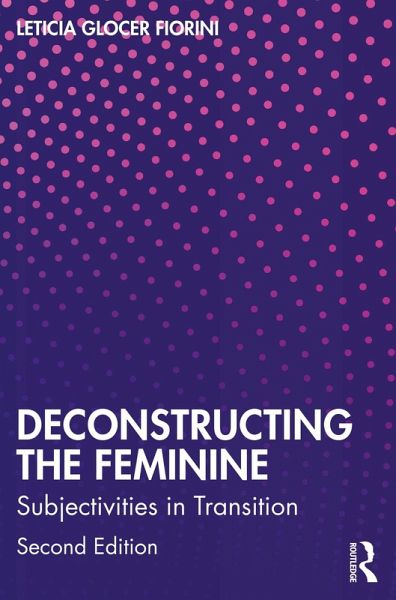
Deconstructing the Feminine (eBook, PDF)
Subjectivities in Transition
Versandkostenfrei!
Sofort per Download lieferbar
31,95 €
inkl. MwSt.
Weitere Ausgaben:

PAYBACK Punkte
16 °P sammeln!
Deconstructing the Feminine looks beyond impasses of binary thought and essentialist conceptions of women and the feminine from a contemporary perspective.With a multi-centred and complex approach and an ongoing dialogue with Freud, Leticia Glocer Fiorini addresses questions relating to love, sexual desire, maternity, beauty, and the passing of time by reconsidering the gender binary and underlying power relations. Glocer Fiorini's work highlights current debates concerning women, the feminine, and sexual difference, as well as discussing topics which have caused controversy throughout the his...
Deconstructing the Feminine looks beyond impasses of binary thought and essentialist conceptions of women and the feminine from a contemporary perspective.
With a multi-centred and complex approach and an ongoing dialogue with Freud, Leticia Glocer Fiorini addresses questions relating to love, sexual desire, maternity, beauty, and the passing of time by reconsidering the gender binary and underlying power relations. Glocer Fiorini's work highlights current debates concerning women, the feminine, and sexual difference, as well as discussing topics which have caused controversy throughout the history of the psychoanalytic movement. The updated and expanded edition distinguishes between the concept of sexual difference and the category of 'difference' as it applies at various heterogenous levels, and includes new approaches reflecting on the 'feminine enigma', hysteria, feminine masochism, and masculinity.
Deconstructing the Feminine will be of great interest to psychoanalysts in clinical practice and in training, as well as to scholars of gender, sexuality, and women's studies.
With a multi-centred and complex approach and an ongoing dialogue with Freud, Leticia Glocer Fiorini addresses questions relating to love, sexual desire, maternity, beauty, and the passing of time by reconsidering the gender binary and underlying power relations. Glocer Fiorini's work highlights current debates concerning women, the feminine, and sexual difference, as well as discussing topics which have caused controversy throughout the history of the psychoanalytic movement. The updated and expanded edition distinguishes between the concept of sexual difference and the category of 'difference' as it applies at various heterogenous levels, and includes new approaches reflecting on the 'feminine enigma', hysteria, feminine masochism, and masculinity.
Deconstructing the Feminine will be of great interest to psychoanalysts in clinical practice and in training, as well as to scholars of gender, sexuality, and women's studies.
Dieser Download kann aus rechtlichen Gründen nur mit Rechnungsadresse in A, B, BG, CY, CZ, D, DK, EW, E, FIN, F, GR, HR, H, IRL, I, LT, L, LR, M, NL, PL, P, R, S, SLO, SK ausgeliefert werden.




